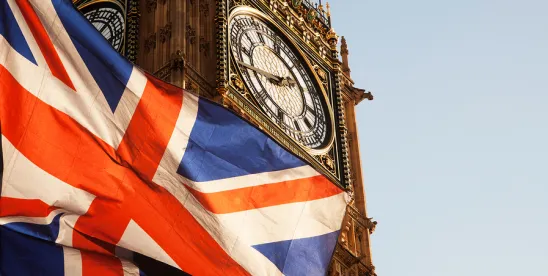The Chancellor of the Exchequer, Rishi Sunak, delivered the government’s ‘Winter Economy Plan’ on Thursday, 24 September 2020.
Set against a marked deterioration in data tracking the spread of coronavirus in the UK signalling a worsening of the health crisis, the statement was afforded heightened importance by the postponement of the Autumn Budget. Given the severity of the impact of COVID-19 on, and the continued fragility of, the UK economy, there is some economic and fiscal logic in delaying the Budget until the depth and breadth of the impact of this latest onset of the virus is better understood. The Chancellor was probably keen to avoid a repeat of the spring which saw him deliver a Budget on 11 March 2020 only to have to then provide an updated emergency statement just nine days later. However, delaying the Autumn Budget may have been greeted with alarm by those hoping it would provide more detail on the government’s plans for softening the disruption faced by businesses preparing for the end of the Brexit Transition period on 31 December 2020, comprehensive, zero-tariff-zero-quota, free trade deal or not.
Understandably, the primary focus of the Winter Economy Plan was on protecting jobs. The Chancellor set out the government’s new scheme to replace the Coronavirus Job Retention Scheme (CJRS)) – the Job Support Scheme (JSS) – and a broadly equivalent scheme for the self-employed – the Self-employed Income Support Scheme (SEISS) Grant extension. The design, operation and merits of the JSS are examined in more detail in an alert by our employment colleagues. There were also extensions to some of the existing loan schemes (including the Bounce Back Loan Scheme (BBLS), Coronavirus Business Interruption Loan Scheme (CBILS), Coronavirus Large Business Interruption Loan Scheme (CLBILS) and the Future Fund).
As has been the case throughout the crisis, tax announcements were muted. Big questions weighing on tax policy undoubtedly lie in wait in the months, and years, ahead: Can tax be used to stimulate the economy back to full health once the pandemic has eventually passed? Should tax policy be engaged to reformulate the economy in the years ahead and to help level-up the country? What role is there for tax in rebalancing the nation’s books? Who should bear the greatest tax burden? Is the post-pandemic, post-Brexit, landscape an opportunity for structural tax reform? Even so, the Chancellor did announce three important extensions to existing measures intended to reduce the immediate pressure and cashflow crisis.
In brief, the tax announcements were:
-
A VAT deferral ‘New Payment Scheme’
The scheme is available to all businesses which deferred VAT due in the period from 20 March to 30 June 2020. HM Treasury estimate over half a million businesses deferred VAT equal to approximately £30bn. It is not clear how much of that has since been paid.
The New Payment Scheme gives affected business the option for spreading the payment of the deferred VAT due (originally due and payable in full on or before 31 March 2021) over 11 equal instalments through the financial year 2021-2022. No interest or penalties will be levied on the ‘late’ payments.
Businesses wishing to take advantage of the scheme need to opt in; it is not automatic. The process for opting in will be unveiled by HMRC early in 2021. Businesses considering spreading the repayment of deferred VAT should check (again) their payment arrangements (e.g. direct debits) are appropriate.
-
Extension of the temporary VAT reduced rate for hospitality and tourism
Available to all VAT registered business in the hospitality, leisure and accommodation sectors. HM Treasury estimate the measure supports more than 150,000 UK businesses.
Since 15 July 2020, eligible businesses have been able to apply a temporary reduced rate (5%) of VAT on their supplies of food, non-alcoholic drinks, hotel and holiday accommodation or admission to certain attractions. The standard rate (20%) of VAT was due to be reinstated on 12 January 2021 but the Chancellor has extended the period during which the reduced rate applies to 31 March 2021.
The scope of the measure is unaffected. As before, any businesses that also utilise the Flat Rate Scheme, the Tour Operators Margin Scheme (TOMS) or any other applicable special retail scheme should consider the impact of the reduced rate (and delayed subsequent reversal) on their VAT calculations and accounting.
-
‘Enhanced Time to Pay’ for Self-Assessment taxpayers
Enhanced Time to Pay is available for self-employed taxpayers (with up to £30,000 of Self-Assessment liabilities due) who deferred their second payment on account for the 2019-20 tax year, originally due by 31 July 2020. Any deferred amount was due to be paid on or before 31 January 2021.
Under Enhanced Time to Pay, self-employed taxpayers who exercised the option to defer their second payment on account will, subject to agreeing a payment schedule with HMRC’s self-service Time to Pay facility, be allowed to pay the tax due over an additional 12 month period with deferred amounts not due to be paid in full until the end of January 2021.
Although it is not clear whether the ‘Enhanced Time to Pay’ will also be available for any balancing payment that would otherwise have been due for payment for 2019-20 on 31 January 2021, the Winter Economy Plan report suggests that it applies only to the deferred July 2020 amount. It is almost certain the first payment on account due for the 2020-21 tax year, also due on 31 January 2021, will be due as normal.
Self-employed taxpayers wishing to take advantage of the extended repayment period should consider clarifying the position to ensure they are fully aware of the full extent of their self-assessment tax due on 31 January 2021. Any self-assessment taxpayer that is not able to pay their tax bill on time, including those who cannot use the online service, are advised to continue to use HMRC’s normal ‘Time to Pay’ helpline to agree a payment plan.




 />i
/>i
